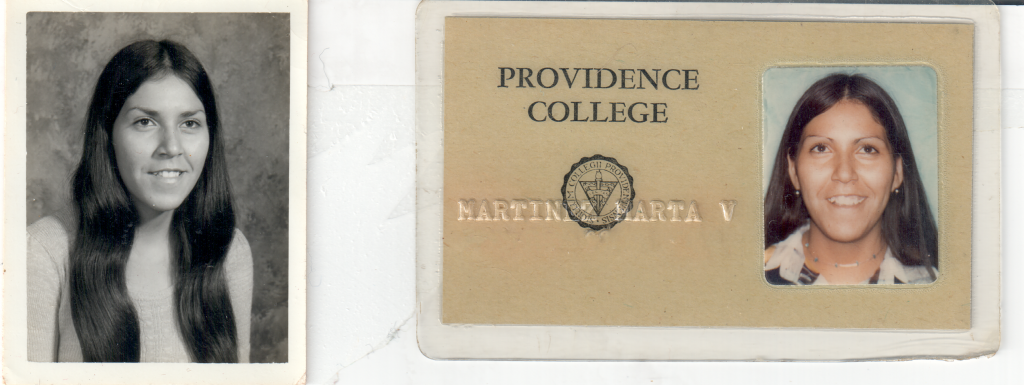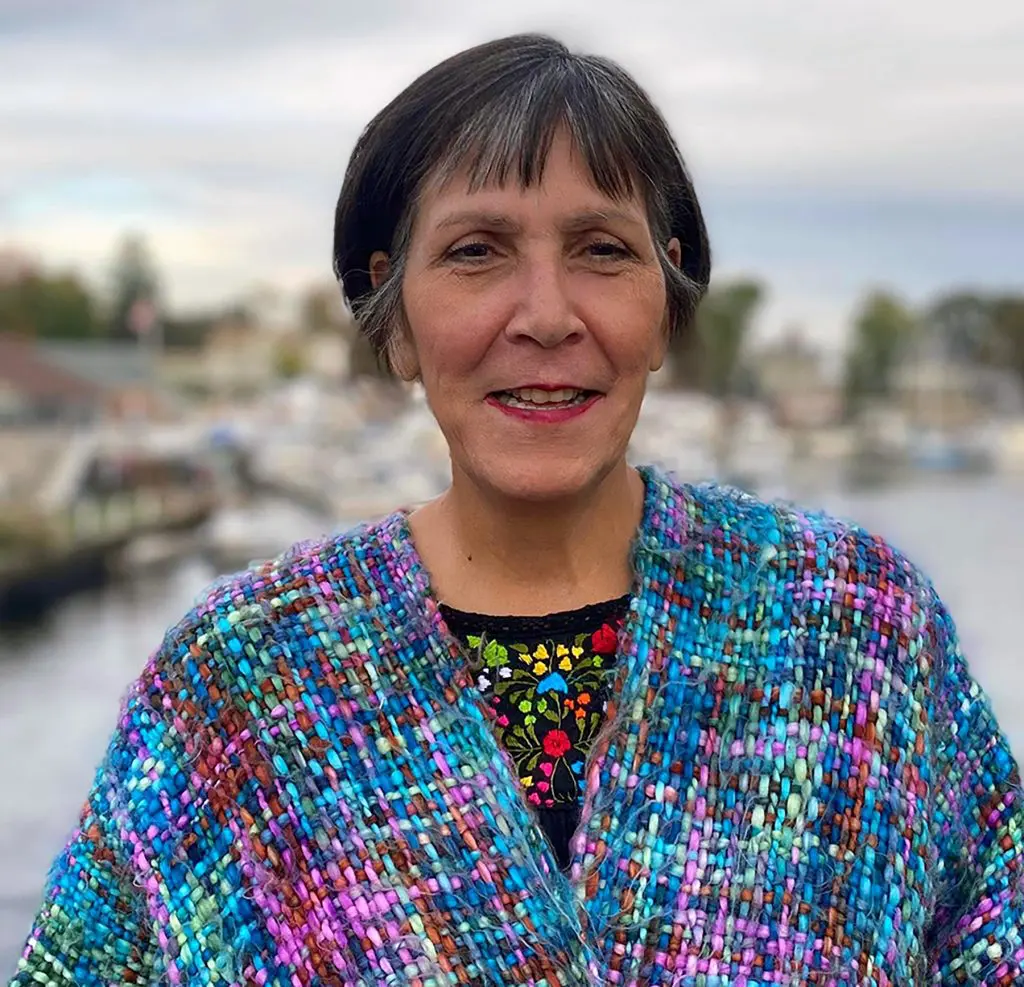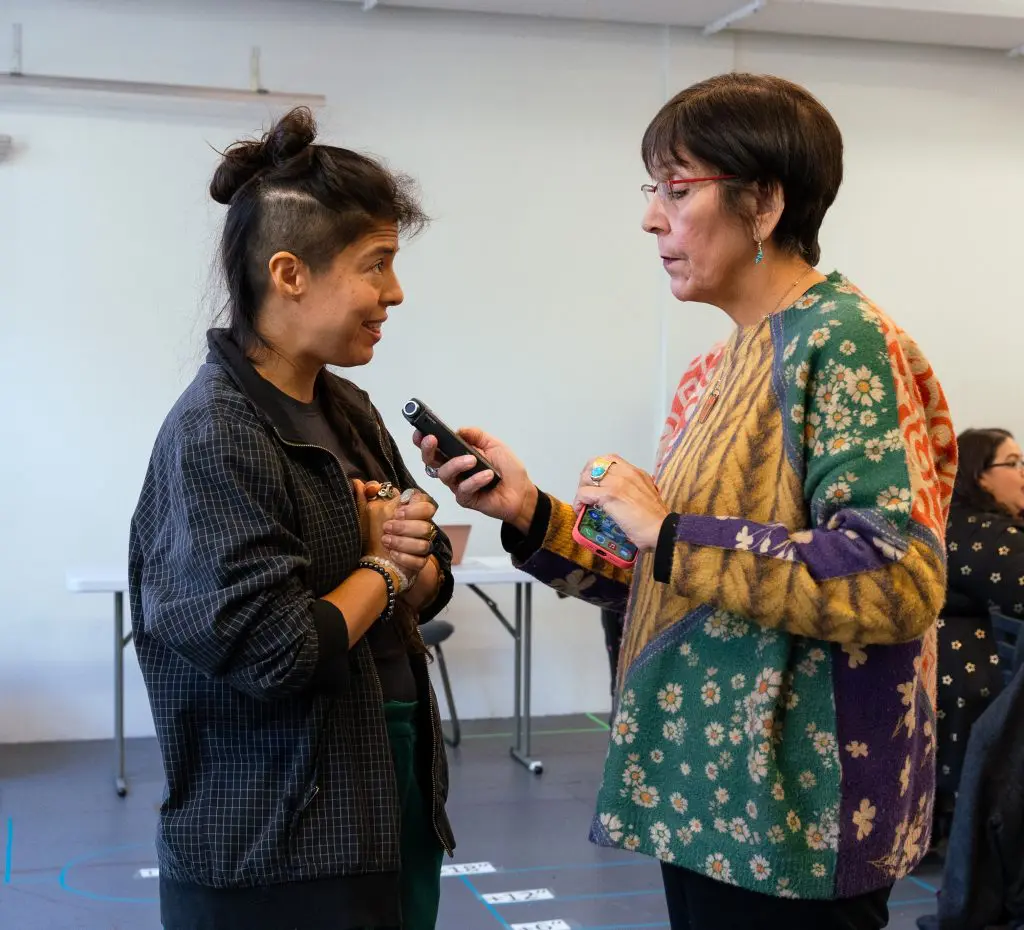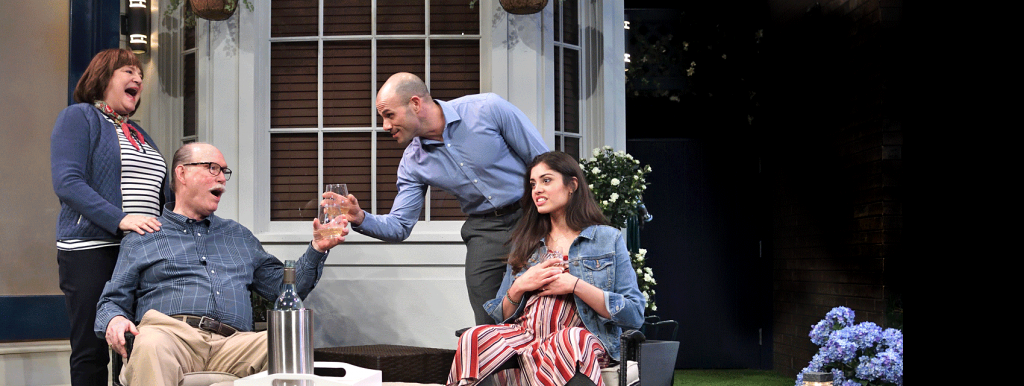Haga clic aquí para leer en español
by Marta V. Martínez, executive director of Rhode Island Latino Arts
I belong to the Latino community, a group in the United States known for its rich diversity in culture, physical appearance, and traditions.
I can be called Latinx. I can be called Latin American. What I prefer to be called is Mexican American – a Chicana, a Latina.
Why does this matter?
In Latin America, we don’t identify ourselves as “Hispanic” or “Latino/Latina.” While growing up, I was a Mexicana. Around me, Guatemalans called themselves Guatemaltecos, Colombians referred to themselves as Colombianos, Dominicans as Dominicanos, and so on. But, upon arriving in the United States, many of us quickly learned that we were now part of a homogenized group labeled “Hispanic” or “Latino,” serving as a bridge to assimilation in our new country.

I grew up in a border city in the United States. But it wasn’t until I moved to Rhode Island that the term “Hispanic” was imposed upon me. At that time, people of color were also being referred to as “minorities,” and the term “Hispanic” felt less offensive because, unlike the first term, it did not make me feel I was less than.
To me, the process of naming an ethnic group is akin to naming a child, a special cultural rite that conveys a unique recognition of identity and place within family history. Unlike other ethnic groups categorized by their country of origin, such as the Irish, Germans, or Italians, we Latinos are distinguished by our shared mother tongue—Spanish. However, in the U.S. we are quickly labeled and stripped of our identity as individuals, no matter where we were born.
The reality is that Latin Americans encompass a rich tapestry of cultures, languages, and histories across 21 republics – each with its distinct history, indigenous languages, religions, foods and philosophies. This diversity defies simplistic categorization under terms like “Hispanic,” “Latino,” “Latinx” or “Latiné.” Understanding this diversity is crucial for someone like me, to be able to see myself accurately reflected in discussions about identity.

Por ejemplo, as a Mexican American, pinto beans and tacos are a staple in my household. But I also know that my Dominican friends and colleagues might prefer to serve habichuelas or mondongo. Latinos do not all listen to mariachis, dance salsa, or share a single skin color (brown).
Intentional language is a crucial part of recognizing the diversity and sharedness of Latino perspectives and identity. Today, the adoption of “Latiné” and “Latinx” by some reflects a desire for a positive and inclusive term that acknowledges these shared experiences. Yet not everyone agrees on these terms, and some may associate them with negative stereotypes, discrimination, or marginalization. While some see them as unifying and politically representative, others prefer to identify primarily with their specific nationality or cultural heritage.
But to get to the meat of why you are reading this piece about the play La Broa’, I’d like to look beyond these terms and what nouns or pronouns are used to describe Latinos and talk a bit about the play.
Celebrating Identity Through La Broa’ (Broad Street)
La Broa’ (Broad Street) is inspired by a personal project I call Nuestras Raíces (Our Roots). It is a book based on 110+ recorded oral histories of the Spanish-speaking people of Rhode Island. The stories on Trinity’s stage are taken from real experiences, and the people (who I will refer to as “Latino” for this piece) lived through them, and one might just be sitting next to you in the audience!
In many ways, I find it compelling to transform oral histories, which are a form of storytelling, into a play, and here is why:

Oral history and theater share commonalities in their emphasis on storytelling and the human experience. Both aim to connect people through shared experiences. Oral history captures the personal accounts of individuals, preserving their voices and perspectives. Similarly, theater brings stories to life on stage, allowing audiences to empathize with characters and engage with the emotional aspects of the narrative.
What I find most compelling about seeing these stories on stage is representation: By staging oral histories of Latinos, Trinity Rep provides a platform for underrepresented voices (Latinos), allowing for authentic representation of their individual experiences.
My hope is that this play will help break stereotypes and promote a more nuanced understanding of Latino culture, of the Latino experience in Rhode Island.
These oral histories also contribute to the preservation of Rhode Island’s overall Latino cultural heritage, as they become a part of the broader cultural narrative and are passed on to future generations.
I hope that La Broa’ will empower individuals whose stories are portrayed on stage by validating their stories and experiences, and that the play will allow the participants in this history to see their lives and struggles acknowledged and celebrated.
By witnessing the lived experiences of Latinos on stage, audiences can develop a deeper understanding of the challenges and triumphs faced by this community, fostering empathy and understanding.
Most importantly, after watching La Broa’ I see the potential for the stories portrayed in each scene to educate audiences about diversity within the Latino community, shedding light on historical events, traditions, and contemporary issues: who we are today as a community, and why.
Going beyond which term we choose to use, or what’s in a name, I see La Broa’ bridging gaps in understanding and fostering cross-cultural awareness, so we can all see Latinos as individuals instead of one homogenous group.
